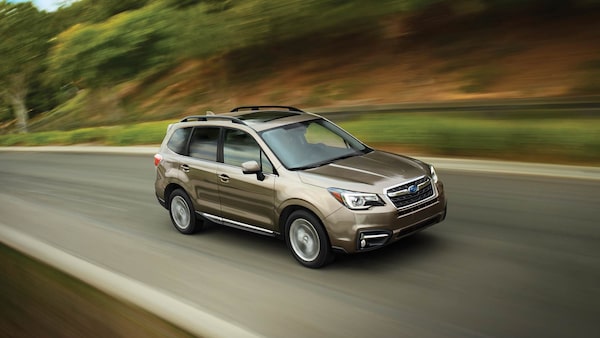
Richard drives a 2018 Subaru Forester and asks about using synthetic oil.Handout
Hi Lou. At the first oil change for my 2018 Subaru Forester, the dealer insisted on using very expensive synthetic oil; the user manual itself says nothing about the oil for the motor. Is it necessary to use synthetic oil? Would more frequent oil changes using regular oil be equally effective? Thanks for your help. – Richard P
Your vehicle uses a 0W20 grade oil with an American Petroleum Institute (API) specification referred to as SN. According the API website, SN-rated oils offer improved high temperature deposit protection for pistons, more stringent sludge control and seal compatibility. This oil also improves fuel economy, turbo charger protection and emission-control system compatibility. The SN designate in the 0W20 grade is only available as a synthetic and is currently being used in many cars on the road today. On a side note, 0W16 is soon to be mainstream with an API rating of SN-PLUS.
So, while your owner’s manual might not state that a synthetic oil is required, it will state that an SN, API grade oil is required. Yes, I agree it can be unnecessarily confusing at times. The engine was designed to use this grade of oil and sticking with the manufacturer recommended oil and intervals is the easiest way to protect against unwanted engine trouble down the road.
Lou, my new Jeep Cherokee makes a singular loud clicking sound from under the car when releasing the brakes after moderate or aggressive braking. Jeep forums discussions mention this but no one, including the dealer, seems to be able to identify the cause. Is this something to be worried about? – Gary C
If I had to make a guess, the first thing I would check would be the brake pads for movement within the caliper brackets. Your vehicle’s front brake calipers are mounted behind the centre-line of the wheel, which means every time you step on the brakes the rotation of the brake rotor will be forcing the brake pads upward. All caliper brackets wear, which may allow the brake pad to fall back down after release, making a clicking noise. I doubt the bracket is worn on a new vehicle, but perhaps the pad is defective and sits sloppily within the bracket allowing for unwanted movement.
Alternatively, maybe the noise is being generated by release of driveline windup from the all-wheel-drive system. Either way, the dealer shop might be able to eventually identify it, but for the time being I am confident it is not something to be too worried about. I’m sure your dealer has diligently checked all your key safety items at your previous visit.
Lou Trottier is owner-operator of All About Imports in Mississauga. Have a question about maintenance and repair? E-mail globedrive@globeandmail.com, placing “Lou’s Garage” in the subject line.
Shopping for a new car? Check out the new Globe Drive Build and Price Tool to see the latest discounts, rebates and rates on new cars, trucks and SUVs. Click here to get your price.
Stay on top of all our Drive stories. We have a Drive newsletter covering car reviews, innovative new cars and the ups and downs of everyday driving. Sign up today.